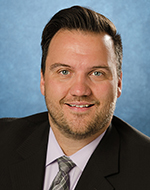Page Content
 On a cold, sunny January afternoon in 1961, in front of 20,000 Americans huddled in the deep snow that had fallen the night before, President John Fitzgerald Kennedy delivered his inaugural address.
On a cold, sunny January afternoon in 1961, in front of 20,000 Americans huddled in the deep snow that had fallen the night before, President John Fitzgerald Kennedy delivered his inaugural address.
Months earlier, in the midst of a nuclear arms race and the deepening tensions of the Cold War, Kennedy was elected with one of the narrowest popular vote margins in American history.
Kennedy sought to unify the country to present a common front against important national challenges and a significant external threat. The speech was broadcast widely on radio and the new emerging technology of television.
|
The trumpet summons us as teachers... Will you join in this historic effort?
|
After the speech, Kennedy’s approval rating rose to 75 per cent.
Of course, the speech is best known for the now famous challenge that Kennedy issued: ask not what your country can do for you — ask what you can do for your country.
Let us reflect on the words that lead into that important quote.
In your hands, my fellow citizens, more than mine, will rest the final success or failure of our course. Since this country was founded, each generation of Americans has been summoned to give testimony to its national loyalty. The graves of young Americans who answered the call to service surround the globe.
Now the trumpet summons us again — not as a call to bear arms, though arms we need — not as a call to battle, though embattled we are — but a call to bear the burden of a long twilight struggle, year in and year out, “rejoicing in hope, patient in tribulation” — a struggle against the common enemies of man: tyranny, poverty, disease and war itself.
…Will you join in that historic effort?
…The energy, the faith, the devotion which we bring to this endeavor will light our country and all who serve it — and the glow from that fire can truly light the world.
Then came Kennedy’s famous challenge.
I raise this, colleagues, because we appear to be headed into a monumental fight for the cause of public education in this province.
The recent budget advances cuts to school board grants totalling a net $275 million. The Class Size Initiative, which may not have succeeded in achieving its goals, but still paid for the salaries of up to 3,000 teachers, has been eliminated. And in the next three years, the government projects no further increases in total operational funding, while the system absorbs an accumulated 60,000 students in enrolment growth.
Since the budget was released, we have seen further attacks on teacher pensions and salary as well. In the intervening days, I have witnessed an incredible surge of engagement. I have seen teachers call and write their MLAs and government ministers. They have posted to social media about their sense of disrespect.
And I have seen many teachers ask about the response of their Association.
I understand the frustration. Teachers want their Association to lead the resistance and to battle back. They want the Association to reflect outwardly all of the angst and frustration that they are feeling inside.
Trust me when I say that Association staff and political leadership have been going all out to mount a strong, effective response. And more is coming. President Jason Schilling has done significantly more news conferences and media interviews in the past six months than any other president at the start of their term.
But, to channel JFK, fellow teachers, in your hands, more than Jason’s, will rest the final success or failure of our course.
The trumpet summons us as teachers. We need everyone to bear the burden of this long twilight struggle.
Will you join in this historic effort?
Ask not what your Association can do for you — ask what you can do for your Association. ❚
I welcome your comments—contact me at jonathan.teghtmeyer@ata.ab.ca.
